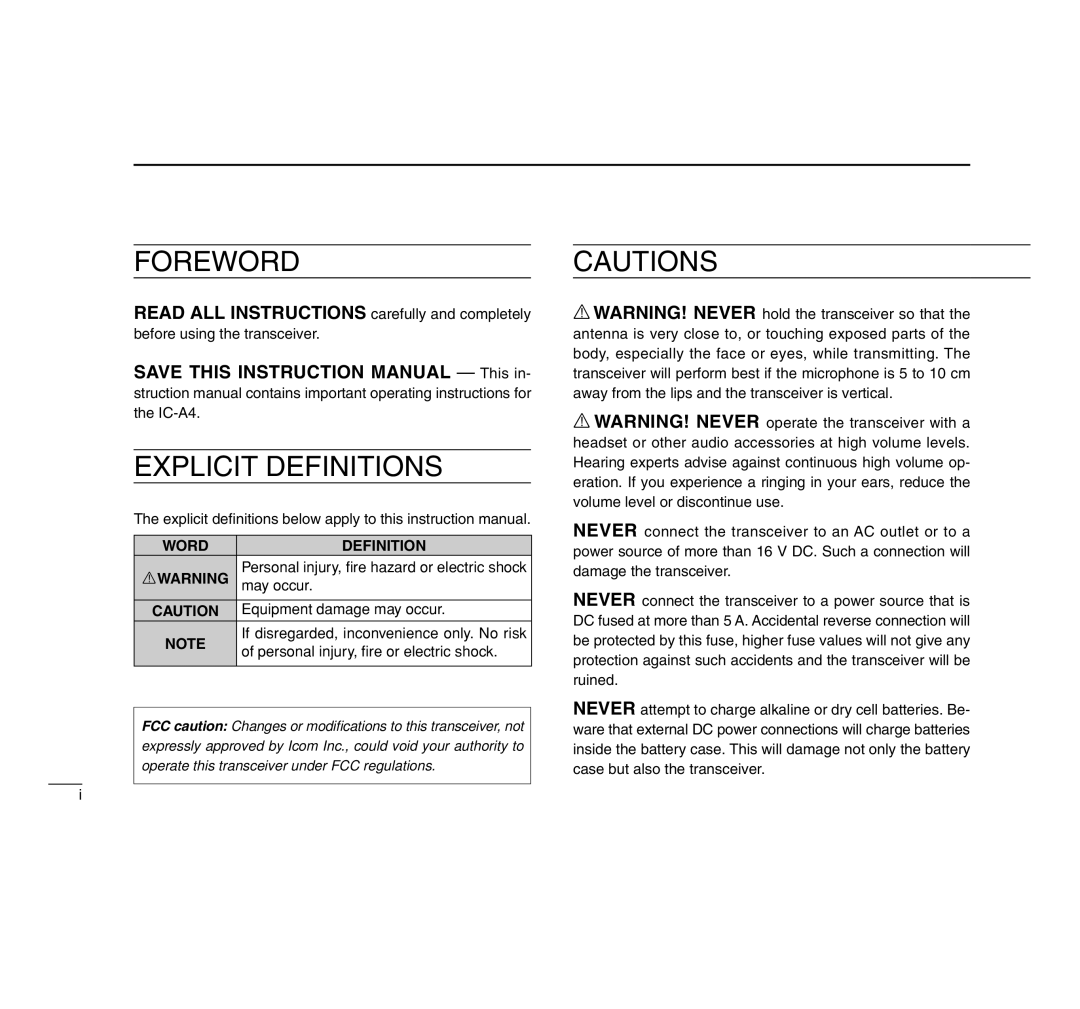
FOREWORD
READ ALL INSTRUCTIONS carefully and completely before using the transceiver.
SAVE THIS INSTRUCTION MANUAL — This in- struction manual contains important operating instructions for the
EXPLICIT DEFINITIONS
The explicit definitions below apply to this instruction manual.
WORD | DEFINITION | |
RWARNING | Personal injury, fire hazard or electric shock | |
may occur. | ||
|
| |
CAUTION | Equipment damage may occur. | |
NOTE | If disregarded, inconvenience only. No risk | |
of personal injury, fire or electric shock. | ||
| ||
|
|
FCC caution: Changes or modifications to this transceiver, not expressly approved by Icom Inc., could void your authority to operate this transceiver under FCC regulations.
i
CAUTIONS
RWARNING! NEVER hold the transceiver so that the antenna is very close to, or touching exposed parts of the body, especially the face or eyes, while transmitting. The transceiver will perform best if the microphone is 5 to 10 cm away from the lips and the transceiver is vertical.
RWARNING! NEVER operate the transceiver with a headset or other audio accessories at high volume levels. Hearing experts advise against continuous high volume op- eration. If you experience a ringing in your ears, reduce the volume level or discontinue use.
NEVER connect the transceiver to an AC outlet or to a power source of more than 16 V DC. Such a connection will damage the transceiver.
NEVER connect the transceiver to a power source that is DC fused at more than 5 A. Accidental reverse connection will be protected by this fuse, higher fuse values will not give any protection against such accidents and the transceiver will be ruined.
NEVER attempt to charge alkaline or dry cell batteries. Be- ware that external DC power connections will charge batteries inside the battery case. This will damage not only the battery case but also the transceiver.
